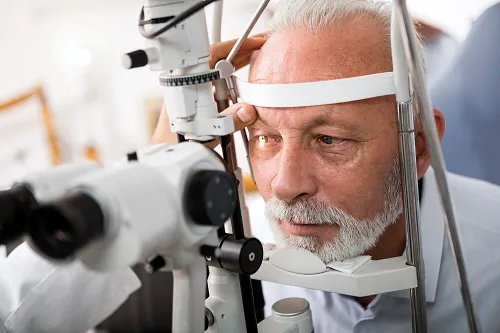
Bayer announced positive topline results from the global Phase III QUASAR study, which evaluated the efficacy and safety of aflibercept 8 mg in patients with macular edema following retinal vein occlusion (RVO), including central, branch, and hemiretinal vein occlusion. The study met its primary endpoint at week 36, showing that patients receiving aflibercept 8 mg every 8 weeks (after initial monthly doses) achieved non-inferior visual acuity gains compared to those on the current standard therapy, Eylea™ 2 mg, administered every 4 weeks.
Aflibercept 8 mg was well tolerated, and its safety profile was consistent with previous clinical trials, reinforcing its potential as a new standard of care for treating exudative retinal diseases, especially in patients with retinal vein occlusion, which typically presents with high VEGF levels. Professor Richard Gale, Clinical Director at York Teaching Hospital in the UK, highlighted the promising data, emphasizing the treatment’s potential to become a new standard of care.
Christian Rommel, Member of Bayer’s Executive Committee and Head of Research and Development, further stated, “The success of the QUASAR study showcases aflibercept 8 mg’s ability to provide sustained disease control with less frequent injections, offering vision gains and tolerability comparable to Eylea 2 mg. For patients, this means fewer injections while maintaining similar efficacy and safety.”
The QUASAR trial demonstrated that the majority of patients on aflibercept 8 mg (about 90%) were extended to an 8-week dosing interval, maintaining this schedule through 36 weeks. By week 32, nearly 70% of patients were moved to a 12-week dosing schedule, potentially reducing the burden of frequent injections further. The study also showed a rapid and robust reduction of fluid in the retina with aflibercept 8 mg, similar to the results seen with Eylea 2 mg, as measured by changes in central subfield thickness (CST), which correlates with disease control.
The mean number of injections over the 36-week period was significantly lower with aflibercept 8 mg, with patients receiving 6.1 to 6.9 injections (depending on whether they started with 3 or 5 initial monthly doses) compared to 8.8 injections with Eylea 2 mg, which was dosed every 4 weeks. Despite receiving fewer injections, aflibercept 8 mg every 8 weeks achieved similar efficacy and safety results compared to Eylea 2 mg.
Detailed results from the QUASAR study will be submitted to regulatory authorities globally and presented at upcoming medical meetings.
Aflibercept 8 mg is already approved in over 50 countries for the treatment of neovascular (wet) age-related macular degeneration (nAMD) and diabetic macular edema (DME) under the brand name Eylea™ 8 mg. In major markets like the EU and UK, Eylea 8 mg became the first anti-VEGF treatment approved for treatment intervals of up to 5 months in DME and nAMD. Available in both a vial and a pre-filled syringe, Eylea 8 mg simplifies the accurate delivery of the recommended dose.
Eylea 8 mg (marketed as Eylea HD in the United States and Canada) is being jointly developed by Bayer and Regeneron. Regeneron holds exclusive rights to Eylea 2 mg (aflibercept 2 mg) and Eylea HD in the United States, while Bayer has exclusive marketing rights outside the U.S. The companies share equally in the profits from sales of both Eylea 2 mg and Eylea 8 mg following regulatory approvals.





